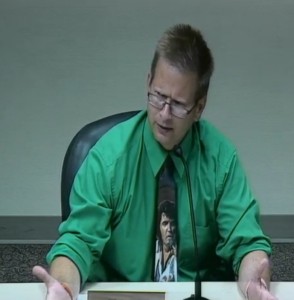Kenosha school board settles lawsuit over collective bargaining agreement

By Ryan Ekvall | Wisconsin Reporter
MADISON, Wis. — The Kenosha school board Thursday night nullified a collective bargaining agreement that got the school district sued.
The board rescinded the agreement with the Kenosha Education Association as part of a settlement with the Wisconsin Institute for Law and Liberty and the National Right to Work Legal Defense Foundation.
Kenosha school board member Gary Kunich reprimanded board members for entering into an “illegal and unethical” contract.
The two groups sued, charging the school district violated Act 10 by entering into collective bargaining with the teachers’ union.
The Education Association has not yet agreed to a settlement.
Board members Carl Bryan and Kyle Flood, who supported the agreement with the union, voted against settling the lawsuit. Rebecca Stevens, who voted for the agreement, joined the majority in agreeing to a settlement.
“Dissolving a legally binding contract without the consent of the other party? I’m going to have no part in it tonight. I’m just really disgusted,” Bryan said at the meeting.
Other board members could not be immediately reached by Wisconsin Reporter.
“Our agreement with KUSD is a win for our clients, for teachers’ rights, for taxpayers, and for the rule of law,” Rick Esenberg, president of the Institute for Law and Liberty, said in a statement. “We’re pleased that the Kenosha Schools have recognized that they made an error in negotiating with their unions and implementing collective bargaining agreements that so clearly violated Act 10.”
The district must also pay $10,500 in attorney fees to the Institute and the Legal Defense Foundation who sued on behalf of local taxpayers Kristi LaCroix and Carrie Ann Glembocki, a teacher at Lakeview Technology Academy.
Had the board failed to act, CJ Szafir, an attorney for the Institute said, “legal costs would have been substantially higher” than $10,500.
Legal costs to Kenosha taxpayers would have been zero had the board taken the advice of its own attorney last October.
School district attorneys advised the board at the time returning to a collective bargaining agreement was “likely illegal under Act 10.” Board member Gary Kunich said not only was the contract illegal, but “unethical to enter into.”
The contract included $1.65 million in bonus pay for teachers, reduced the work day to 7.5 hours from eight, made union dues deductions automatic and offered “fair share” provisions for non-union members covered by the CBA.
Under Act 10, the school board could have offered teachers the pay raise and the reduced work day in an employee handbook, which have replaced collective bargaining agreements in more than 99 percent of Wisconsin school districts. Involuntary dues deductions and so-called fair share fees are illegal under the law.
Contact Ryan Ekvall at rekvall@watchdog.org, 608-257-1382 or follow him on Twitter @Nockian.







